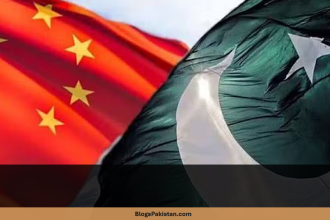- The crackdown targets indoor sheesha cafes violating court orders.
- Multiple cafes in sectors F-6, F-7, and E-7 have been sealed.
- Sheesha smoking poses serious health risks, contrary to popular belief.
- The movement is part of a broader public health initiative.
- Public opinion is split, with health advocates in favor and business owners raising concerns.
The aromatic curls of smoke (Sheesha ) that once filled the air in many upscale neighborhoods of Islamabad are beginning to disappear—at least temporarily. A growing trend among youth and young adults, sheesha (or hookah) culture in Pakistan has become a widespread social pastime. However, the charm of this smoky indulgence is now under official fire as authorities intensify a crackdown on illegal indoor sheesha cafes in the capital.
In a sweeping move, Islamabad’s district administration has sealed multiple sheesha lounges operating in violation of court orders. The development marks a turning point in the city’s public health policies and law enforcement efforts against businesses that were operating in a grey legal zone for years.
This blog dives deep into the crackdown, explores the legal and health implications of shesha smoking, and examines how this might reshape Islamabad’s nightlife and youth culture.
What Triggered the Crackdown on Sheesha Cafes?
The Legal Background
The Islamabad High Court had previously issued directives restricting indoor smoking in public spaces, including cafes, restaurants, and lounges offering sheesha services. These laws are part of broader national and international commitments, including the WHO Framework Convention on Tobacco Control, which Pakistan is a signatory to.
Despite these directives, a number of cafes in sectors F-6, F-7, and E-7 continued to serve indoor sheesha behind closed doors—often under the guise of regular cafes or “private lounges.” These venues thrived, especially in affluent neighborhoods where young adults frequent such places for entertainment and socializing.
The Operation: Cafes Sealed, Arrests Made
According to official reports, the Islamabad district administration launched an aggressive crackdown targeting indoor sheesha cafes:
- Seven cafes were sealed in some of the city’s most upscale sectors.
- Seven individuals were taken into custody for flouting court orders.
- A high-profile sheesha lounge in Sector E-7 was sealed for continuing operations in direct defiance of judicial directions.
The Deputy Commissioner (DC) of Islamabad has declared a zero-tolerance policy toward such violations. He has also warned that strict disciplinary action will be taken against area officials found negligent in enforcing the law.
“We will take strict action against all those violating court orders. This is about public health and legal compliance,” said the DC in a public statement.
Why Is Sheesha Being Targeted?
Health Risks of Sheesha Smoking
Although often perceived as a “safer” alternative to cigarettes, sheesha smoking carries serious health risks:
- One hour of sheesha smoking can be equivalent to smoking 100 cigarettes, according to the World Health Organization (WHO).
- It increases the risk of lung cancer, heart disease, and respiratory problems.
- The shared mouthpieces can also transmit infectious diseases like tuberculosis and hepatitis.
Despite these known risks, sheesha cafes in Pakistan continue to attract large crowds, particularly students and young professionals, many of whom view it as a harmless social activity.
A Public Health Concern
The crackdown is not just about legal violations—it’s also a public health intervention. Indoor sheesha cafes expose both customers and staff to secondhand smoke, a serious health hazard. The enforcement of smoking bans in indoor public spaces is part of the government’s strategy to protect citizens’ health and reduce the burden on public healthcare.
The Rise of Sheesha Culture in Urban Pakistan
From Exotic to Everyday
Over the last two decades, sheesha has evolved from a niche Middle Eastern tradition to a mainstream social trend in Pakistani cities. Islamabad, Lahore, and Karachi are dotted with cafes and lounges offering elaborate sheesha menus featuring flavors from mint and grape to exotic blends like “blue mist” or “double apple.”
Many cafes marketed shesha as a part of an upscale lifestyle—complete with mood lighting, luxurious interiors, and themed music nights. This glamorization contributed to its widespread appeal among the urban elite.
Youth and Lifestyle Influence
Sheesha smoking has become embedded in the urban youth culture—seen as a trendy, fashionable activity that fits perfectly with Instagram aesthetics and weekend hangouts. With growing exposure to global trends and digital influencers, many young people see it as a symbol of modernity and social freedom.
What’s Next for Sheesha Cafes in Islamabad?
Stricter Monitoring and Expanded Action
With the current crackdown, officials have indicated that this is only the beginning. More inspections and legal actions are expected across Islamabad, and the net is likely to widen to cafes operating in suburban areas and smaller towns.
Owners of cafes are now being advised to:
- Cease indoor sheesha services immediately
- Obtain proper legal clearances if offering outdoor sheesha in permitted zones
- Ensure compliance with tobacco control laws and health regulations
Failure to comply may lead to permanent closures, fines, and criminal proceedings.
Public Reaction: A Divided Debate
Supporters of the Crackdown
Health professionals, educators, and parents have largely welcomed the crackdown, viewing it as a necessary step to curb harmful habits and enforce the law.
“This is a positive step toward protecting our youth from a harmful addiction disguised as harmless fun,” said Dr. Asim Khalid, a pulmonologist at PIMS Hospital.
Critics Speak Out
On the other hand, some members of the public argue that the government should regulate rather than ban sheesha. They point to its economic value—providing jobs, attracting tourism, and boosting local business revenues.
Some café owners also feel targeted unfairly.
“We’re being penalized for something many still consume at private homes. Why not regulate it rather than ban it outright?” said the manager of a recently sealed cafe in Sector F-7.
Conclusion: A Cultural Shift or Just a Legal Move?
Whether this crackdown marks the beginning of the end for sheesha culture in Islamabad remains to be seen. But what is clear is that the government is serious about enforcing tobacco laws and public health mandates, particularly in high-profile areas.
For now, the youth and cafe-goers of Islamabad will have to reconsider their weekend plans—and perhaps, reassess their perception of what’s “trendy” and what’s truly safe.
Want to stay updated on Islamabad’s lifestyle changes, legal updates, and youth culture trends? Follow our blog for real-time stories and insights.










